
THE VOICE OF INTERNATIONAL LITHUANIA
|
VilNews has its own Google archive! Type a word in the above search box to find any article.
You can also follow us on Facebook. We have two different pages. Click to open and join.
|
News
- Posted by - (0) Comment

Foreign Minister Azubalis:
Belarus and Russia plan to build unsafe nuclear power plants at Lithuania’s borders
When speaking at the annual conference "Independent Energy – Strong Economy" on 10 October, Lithuanian Minister of Foreign Affairs Audronius Azubalis emphasized that although Lithuania regained its independence more than 22 years ago, it still may not freely choose importers of oil, gas or electricity, reported BC the MFA.
Read more…
- Bookmark :
- Digg
- del.icio.us
- Stumbleupon
- Redit it
- Posted by - (0) Comment
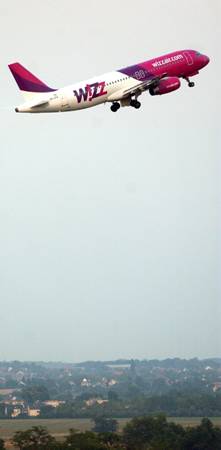
Air traffic to Lithuania
at historic highs
Last 12 months marked by record-breaking passenger traffic at Vilnius International Airport, servicing more than two million passengers over the last twelve months – reaching the highest number over its operation history – and developed the average growth in passenger traffic of 41.96 percent. It is expected that the closing of 2012 will be profitable.
The highest number of passengers over the last twelve months was serviced by the low-cost airlines – Ryanair and Wizz Air, i. e., their market share reached 18 percent each, while the market of Small Planet Airlines, Lufthansa and AirBaltic reached 9 percent each, leaving Scandinavian Airlines with 6 percent. The most popular destinations from Vilnius International Airport were Germany, the UK, Latvia, Italy, Denmark, Ireland, Russia, Spain and Turkey.
“The growth was particularly active in April last year, this trend continues to date“, said Director General of IVA Tomas Vaišvila. According to him, successful performance is the result of both successful performance of traditional airline companies and growing demand in flights provided by low-cost airlines.
Vaišvila stated that IVA management constantly seeks new methods for activity optimisation and cost reduction. Over the last nine months of 2012 the costs were reduced to the level that allows forecasting profitable closing of this year. Strategic operational plan of Vilnius International Airport providing for positive performance of the period of 2013-2015 is currently being developed.
Vilnius International Airport, by applying attractive pricing for airlines and by utilising higher passenger traffic plans to further develop aviation and non-aviation operations and increase their revenue.
Currently Vilnius International Airport offers regular flights to 36 destinations to 29 cities and as many as 43 routes. Regular flights are performed by 18 airlines.
- Bookmark :
- Digg
- del.icio.us
- Stumbleupon
- Redit it
- Posted by - (0) Comment
AirBaltic may have to pay back EUR 81m in state aid
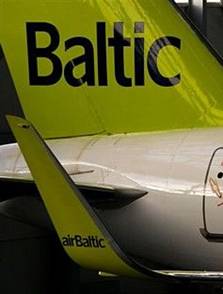
Latvian national airline airBaltic may have to pay back EUR 81m in state aid that it received from the Latvian state in 2011 after the airline stopped doing business with its CEO and shareholder Bertold Flick.
Acting reportedly on the information received from Flick, the European
Commission launched an investigation at the end of 2011 into whether such a capital injection was in line with the rules regulating state aid to state enterprises.
No decision has formally been made yet said Janis Vanags, vice president for corporate communications of airBaltic. He hoped that the European Commission would not demand airBaltic to pay back the amount because similar capital injections during crisis years have been made also in other airlines, including Czech Airlines and Air Malta.
Vanags added that the fact that airBaltic has been successfully restructured is also speaking in its favour
- Bookmark :
- Digg
- del.icio.us
- Stumbleupon
- Redit it
- Posted by - (0) Comment
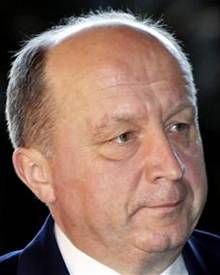
Parliamentarian elections 14 October:
Frustrated voters leave
the Conservatives
For the first time since regaining independence in 1991, Lithuanians have the opportunity to re-elect the same government formed at elections four years earlier. Yet they are almost certain to reject this chance of political continuity.
Frustrated with dismal living standards and a poignant sense of dysfunctional social justice, voters in the Lithuania are poised to send packing the conservative-led coalition and return opposition centre-leftists and populists to the helm. Such a scenario could, in turn, postpone tentative plans to introduce the euro and affect preparations for Lithuania's presidency of the European Union's Council of Ministers in the second half of 2013.
Polls indicate that either the Social Democrats, who reigned over Lithuanian politics for more than six years before getting the boot in 2008
elections, or the Labour Party, a Russia-friendly group of populists known for extravagant promises and endless scandals, will finish first in the 14 October ballot. Each party could garner anywhere from 15% to 20% of the vote, but as each is suspicious of the other, it is uncertain whether they would opt to co-operate and, if not, what kind of mixedbag coalition might emerge in the next Seimas, Lithuania's parliament.
Andrius Kubilius (picture) is the first Lithuanian prime minister to serve a full four-year term. But his party, the Conservatives-Christian Democrats, is on course to finish fourth or fifth and be left out of the next government. It is not too surprising. Having taken the reins in December 2008, the Conservatives were handed a rotten deal: Lithuania was nose-diving into recession, and Kubilius had to force austerity onto the country of 3 million in order to avoid Latvia's predicament of asking international lenders for a multi-billion euro bail-out.
- Bookmark :
- Digg
- del.icio.us
- Stumbleupon
- Redit it
- Posted by - (0) Comment
Beware Russia's hand in Lithuanian elections
A top priority of Russian President Vladimir Putin is the reintegration of former Soviet republics – based on tighter economic links and culminating in a political and security pact centered around Russia. Meddling in Eastern European elections is one way to fulfill Putin's regional ambition.
- Bookmark :
- Digg
- del.icio.us
- Stumbleupon
- Redit it
- Posted by - (0) Comment

Lithuanian-made femtosecond lasers account for 80 % of the world market.
Lithuania, a leading light
in laser technology
The European Union's innovation scoreboard ranks Lithuania as a modest innovator, but there is one field in which this Baltic country of 3.2 million people shines, literally: lasers.
Half of all picosecond lasers sold worldwide are produced by Lithuanian companies, while Lithuanian-made femtosecond parametric light amplifiers, used in generating the ultrashort laser pulses, account for as much as 80 % of the world market.
Vilnius University and the Institute of Physics have been carrying out cutting-edge laser research since the 1970s, a decade or so after the first functioning laser was demonstrated. And today their work in the area is continuing apace — especially through collaboration in EU ICT projects.
Read more…
- Bookmark :
- Digg
- del.icio.us
- Stumbleupon
- Redit it
- Posted by - (0) Comment
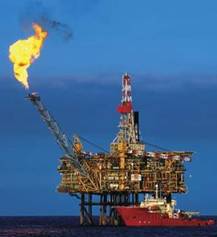
Lithuania seeks to import gas from Israel
VILNIUS - Lithuanian Minister of Economy Minister Rimantas Zylius says his country plans to import gas from Israel starting in 2014.
"We have already ordered tankers and are building a port for this purpose. This way, we'll be able to end Russian Gazprom's monopoly on gas supplies to Lithuania. We are just waiting for Israel to start exporting gas already," Zylius told the Yedioth Ahronoth daily.
According to the minister, "Lithuania longs to do business with Israel. We admire the State of Israel for being one of the world's most advanced startup countries and a leader in life sciences. The Teva facility opened in Lithuania is an example for all factories in the country."
Last week, the Lithuanian capital of Vilnius hosted the Life Sciences Baltic conference, which was attended by representatives from dozens of countries. The Israeli delegation, which included 120 businesspeople and scientists, was the biggest of all.
Read more…
- Bookmark :
- Digg
- del.icio.us
- Stumbleupon
- Redit it
- Posted by - (0) Comment

Russia taking an increasingly nasty tone with Finland
The Finns are expanding their already impressive military might, posing questions for their Nordic neighbours and Russia.
Finland takes its security seriously, which means Finns do not like talking about it much, especially to outsiders. Few realise that a Nordic country of just over 5.3 million people has the biggest artillery force in Europe, for example, and some of the most advanced airspace surveillance. It has top-notch special forces; its cyber-defences are in far better shape than those in most European countries. Finnish military intelligence is as formidable as it is discreet.
Nor does anyone like discussing why. Finnish diplomats like to point out that they have excellent relations with all their neighbours. Yet it is clear that Finnish military planners do not lose any sleep about possible aggression from Estonia, Sweden or Norway. Russia, however, is an uncomfortable neighbour, and has been taking an increasingly nasty tone with Finland this year. Russia's President Vladimir Putin threatened a “tough response” if Finland improved its co-operation with NATO or bought new weapons.
- Bookmark :
- Digg
- del.icio.us
- Stumbleupon
- Redit it
- Posted by - (0) Comment
Edward Lucas:
Finland takes its security seriously
Finland takes its security seriously, which means Finns do not like talking about it much, especially to outsiders. Few realise that a Nordic country of just over 5.3 million people has the biggest artillery force in Europe, for example, and some of the most advanced airspace surveillance. It has top-notch special forces; its cyber-defences are in far better shape than those in most European countries. Finnish military intelligence is as formidable as it is discreet.
Nor does anyone like discussing why. Finnish diplomats like to point out that they have excellent relations with all their neighbours. Yet it is clear that Finnish military planners do not lose any sleep about possible aggression from Estonia, Sweden or Norway. Russia, however, is an uncomfortable neighbour, and has been taking an increasingly nasty tone with Finland this year. Russia's President Vladimir Putin threatened a “tough response” if Finland improved its co-operation with NATO or bought new weapons.
- Bookmark :
- Digg
- del.icio.us
- Stumbleupon
- Redit it
- Posted by - (0) Comment
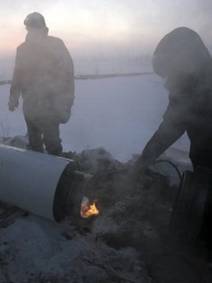
Russia and its Gazprom oil and gas monopoly need to recognize and play by EU rules
Russia and its Gazprom oil and gas monopoly need to recognize and play by the European Union's market rules, EU Energy Commissioner Guenther Oettinger says.
Oettinger made in the remarks Friday in Lithuania, a country entirely dependent on Russian natural gas imports and which is seeking to spin off ownership of its gas transmission network in accordance with the European Union's energy market reform efforts, the Sofia News Agency reported.
Oettinger told attendees to an energy conference in Vilnius the Kremlin needs to "accept our European Union rules" as it comes under fire for allegedly seeking to limit natural gas supplies and artificially raise prices for its European customers.
Gazprom sets its prices under long-term contracts linked to oil prices, and as oil prices have remained stubbornly high, so have the prices it charges for gas. That means national suppliers have to sell the gas to their household customers at lower retail levels.
That situation prompted the European Union to announce this month it had opened formal proceedings to investigate whether Gazprom was obstructing competition in Central and Eastern Europe, which led to a decree from Russian President Vladimir Putin last week banning Gazprom and other state-owned companies from disclosing information to foreign regulators.
- Bookmark :
- Digg
- del.icio.us
- Stumbleupon
- Redit it
- Posted by - (0) Comment

Baltic exports to Russia
have jumped to the highest
in more than a decade
Estonia’s biggest liquor producer has no time for political squabbles as sales to Russia help it plot a safe passage through the euro-area debt turmoil.
“It would be very shortsighted if we turned our backs on Russia,” Liviko AS’s Chief Executive Officer Janek Kalvi said in a phone interview from the capital, Tallinn. “Especially if you look at what’s been happening in Europe.”
Baltic exports to Russia, now Estonia’s top destination for goods, have jumped to the highest in more than a decade, fueling Europe’s fastest growth after the region that also includes Latvia and Lithuania endured the world’s worst recessions after Lehman Brothers Inc.’s 2008 collapse. The surge has defied strained ties over issues from Soviet occupation to energy imports and has helped drive Baltic debt yields to record lows.
Read more...
- Bookmark :
- Digg
- del.icio.us
- Stumbleupon
- Redit it
- Posted by - (0) Comment
Record harvest in
Lithuania this summer

Lithuania plans to boost its grain exports to 2.5 million tons this year after a record harvest, 15min reported, citing Adomas Grigaitis, head of grain exporter Litagra Prekyba.
Lithuania may see a record grain harvest of as much as 4.5 million tons this year, or 1 million tons more than the average in previous years, the newspaper said.
- Bookmark :
- Digg
- del.icio.us
- Stumbleupon
- Redit it
- Posted by - (0) Comment
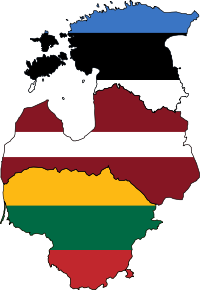
Baltic countries must
stop silly cock-fighting
Tõnis Tamme, attorney and a partner of pan-Baltic alliance of commercial law firms TRINITI writes about how the Baltic countries could and should cooperate better for the common good.
One can often hear ambitious words in Estonia – that the real opportunities of our enterprises for the next decades are related to China, India, South-East Asia and other far-away markets. Indeed, the global economic crisis made Baltic enterprises adopt a wider view of export markets than before. It was a positive change for the small economy of the economic boom period, as it had been too focused on domestic consumption. On the other hand it’s not probable that the exotic markets would be the driving force carrier of the economies of Lithuania, Latvia or Estonia in near future. Rather, the much-discussed globalisation stage entails regionalisation, resulting in widening those mental borders that we perceive to determine “our” home market.
No ground for snobbism
The competition among the Baltic States for the name of the “best port” for foreign investments is growing. All three countries have their own perceivable and developed advantages – Lithuania has the largest domestic market, Latvia is logistically in the centre of the region and Estonia has pulled somewhat ahead of others with the structure of its economy and key figures.
- Bookmark :
- Digg
- del.icio.us
- Stumbleupon
- Redit it
- Posted by - (0) Comment

Gazprom under EU
antitrust investigation
- Lithuania rejoices
When the European Commission announced Tuesday night that it is investigating Russia’s OAO Gazprom for potential abuse of its dominance in the natural gas markets of eight Central and Eastern European states, Lithuania likely rejoiced more than others. The small Baltic country has been at the forefront of the European Union’s struggle against overdependence on Russian natural gas supplied by state-owned Gazprom.
“This is very important, first of all for Lithuania,” Energy Minister Arvydas Sekmokas told Real Time Brussels in an interview Wednesday. Lithuania, along with several other small EU countries, depends on Russia for virtually all its gas supplies, putting Gazprom into an unusually strong position.
- Bookmark :
- Digg
- del.icio.us
- Stumbleupon
- Redit it
- Posted by - (0) Comment
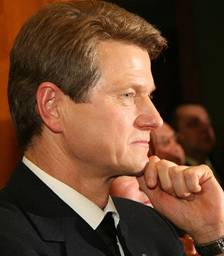
Constitutional Court bans former impeached president Rolandas Paksas from running for parliament
- Bookmark :
- Digg
- del.icio.us
- Stumbleupon
- Redit it
![]()
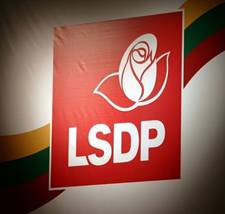
Support for the Social Democratic Party surged to 17.9 % from the previous 14.2%
Support for Lithuania’s opposition parties has surged ahead of a parliamentary election in October, an opinion poll by Spinter Tyrimai for online news service Delfi indicated.
Support for the Social Democratic Party surged to 17.9 percent from the previous 14.2 percent, in a survey conducted between July 20 and July 29, Delfi said. The Labor Party was favored by 16.9 percent, up from 13.3 percent. Order & Justice ranked third with 9.4 percent and Prime Minister Andrius Kubilius’s Homeland Union was on 7.7 percent.
The Liberal Movement, a partner in the current ruling coalition, is the fifth political party that would pass the 5 percent threshold in the election, with 5.2 percent support, according to the survey.
The poll of 1,007 eligible voters had a margin of error of 3.1 percentage points. The election takes place on Oct. 14.
- Bookmark :
- Digg
- del.icio.us
- Stumbleupon
- Redit it
VilNews e-magazine is published in Vilnius, Lithuania. Editor-in-Chief: Mr. Aage Myhre. Inquires to the editors: editor@VilNews.com.
Code of Ethics: See Section 2 – about VilNews. VilNews is not responsible for content on external links/web pages.
HOW TO ADVERTISE IN VILNEWS.
All content is copyrighted © 2011. UAB ‘VilNews’.

 Click on the buttons to open and read each of VilNews' 18 sub-sections
Click on the buttons to open and read each of VilNews' 18 sub-sections 

















.jpg)



